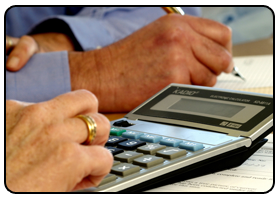In our first two articles in this series, we looked at Debt Consolidation and the Debt Management Plan as two of the main approaches for dealing with personal debt problems. In this article we will briefly look at the first of two formal processes that are specifically targeted at debts who are insolvent i.e. an Individual Voluntary Arrangement.
An Individual Voluntary Arrangement or IVA is a formal insolvency process and is an alternative to bankruptcy. In an IVA you enter an agreement with your creditors that you will repay a certain amount of your debt over a fixed period of time, usually five years, although the term could be much shorter – as little as six months – if you can offer a cash lump sum to your creditors and in some cases it can be longer, perhaps six or even seven years. The important point is that at least 75% of your creditors as measured by the amount of your debts to them must accept your IVA proposal, for your IVA to come into being. This decision to accept or reject your IVA proposal is taken at a meeting of your creditors and that decision is binding on all of your creditors, even those who abstained and elected not to vote either for or against your proposal.

It should be stated that for an IVA to be proposed, you the debtor must be insolvent and the total of your unsecured debts would have to be at least £15,000. You need to have a regular source of income and have a reasonable amount of disposable income left over after taking into account your normal living expenses and the amount you need to keep back to service your secured debts such as your mortgage and car HP. This disposable income is the payment you make each month to your IVA and which is used to pay your unsecured creditors and to fund the administration costs of your IVA. By law, you must utilize the services of an Insolvency Practitioner or IP to assist in the IVA process. The IP’s charges are clearly stated in the proposal and these fees and costs are deducted from the monies you contribute to your IVA. There are no upfront fees to be paid and if your creditors do not approve your IVA proposal, you pay nothing to the IP.
If your IVA is accepted by your creditors, all of your creditors must cease recovery actions against you and must, by law, suspend all interest and charges. The IP assumes all contact with your creditors on your behalf and makes the payments to your creditors out of the monies you pay into your IVA.
Much has been written about IVAs and there are additional sources of advice available on the internet but again the debtor should consider all of the options before committing to any one of them. In the next and last of the articles in this series, we will briefly look at the fourth main approach to personal debt problems i.e. bankruptcy.
Author : Paddy Byrne 30/08/2012
